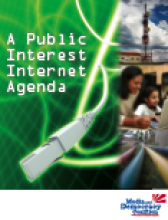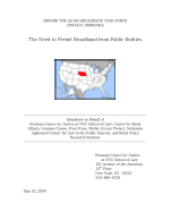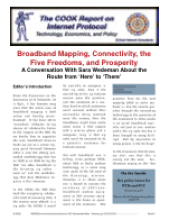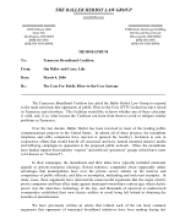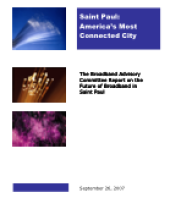Open Access: The Third Way
Andrew Cohill of Design Nine has released a report about Open Access networks: "Broadband for America: The Third Way." I wanted to highlight this report because open access is an important idea that should be promoted and discussed. I believe open access is the most promising way to create the world most people want to live in - fast and affordable networks offering many choices in services and service providers to all Americans. However, though I hold Andrew in high regard, I have some disagreements with the paper that are noted below. This paper comes at an important time. For more than a decade, we have ended each year with less broadband competition than we started with. Politicians and regulators have abandoned policies aimed at promoting competition despite their continued lip service in favor of it. Incumbents have more and more power over both subscribers and entire communities. If we want competition in broadband and cable (and I certainly do!), open access is the only feasible approach. The cost of building the networks is fantastically high whereas the cost of offering services to an additional user are tiny. The result is a network with strong natural monopoly characteristics. Without a network that shares infrastructure (wires, poles, CPE, etc.), the market will trend toward monopoly or duopoly. Wireless complements wired broadband but cannot provide the high speeds and reliability of fiber-optic networks. Even if some metro areas can support multiple networks, most rural areas can barely support one network. Without open access, significant parts of the country cannot have a choice in service providers. Read more...




